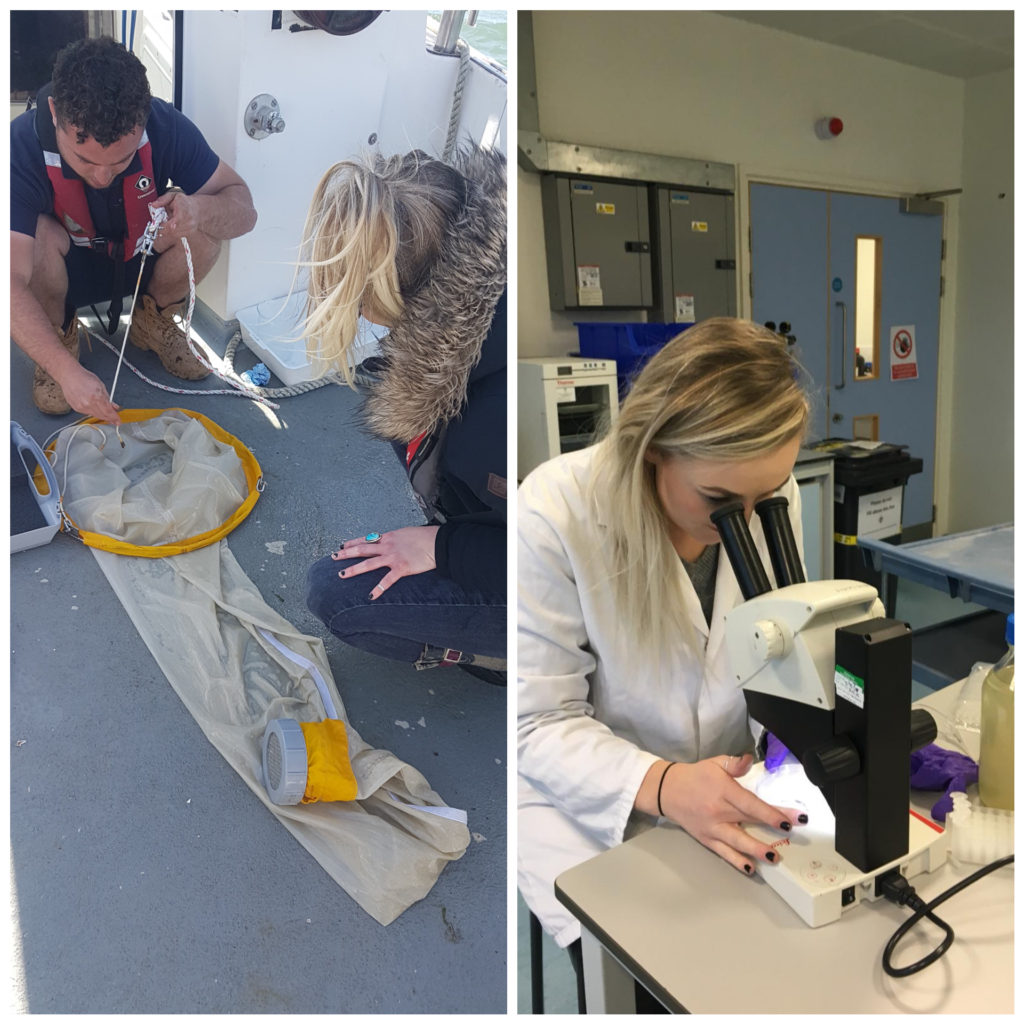PhD Student
Jessica Hurley
Department of Biological and Marine Sciences, University of Hull
Email: J.Hurley-2019@hull.ac.uk

My PhD Research
Microplastic pollution of the marine environment represents one of the most ecologically foreboding anthropogenic impacts of recent times. The ubiquity of microplastic pollution throughout the oceans, both in depth and geographically exemplifies the necessity for the understanding of impacts on marine organisms. The ingestion of microplastics and the consequential impacts on the individual will lead to the elucidation of resulting ecosystem-level effects. My research aims to address four main areas (focusing on model species Nereis succinea and Laternula elliptica):
- What are the drivers of microplastics ingestion? (Why and how do animals sense and incorporate microplastics?)
- What are the consequences of microplastic ingestion? (What affects does microplastic ingestion have on physiology, reproduction and behaviour?)
- How do consequences change under other stressors? (What affects does microplastic ingestion have under climate change scenarios and in the presence of other pollutants?)
- What are the consequences of microplastic ingestion to animals adapted to different climates? (Do consequences differ between animals from polar, temperate and tropical regions?)
Background
During my undergraduate degree in biology at the University of Brighton, I became most interested in ecotoxicology, forming the basis of my undergraduate research ‘The effects of environmentally relevant concentrations of metformin on the development and behaviour of the Zebrafish (Danio rerio)’. Following this, I enrolled in MRes Ecology and began research on microplastics, specifically ‘Lugworm (Arenicola marina) as a biological indicator of microplastic pollution in an estuarine ecosystem (Chichester Harbour, West Sussex, UK)’. I regarded this work as a prerequisite to further research on the physiological implications of microplastic ingestion, which I aim to address during my PhD. Alongside my studies and research, I volunteered with Sussex IFCA, worked as a trainee junior aquarist and completed a voluntary work placement at Mankwe Wildlife Reserve, South Africa.
